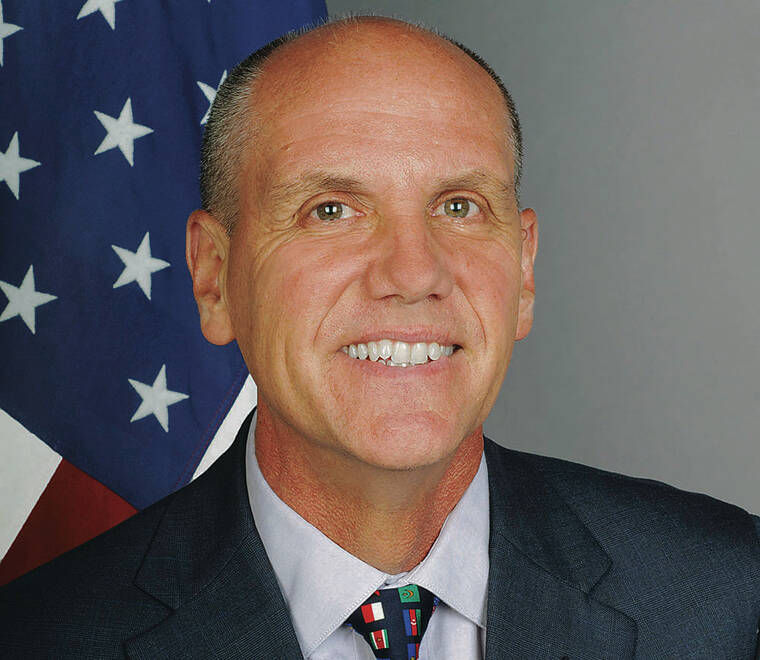Column: No time to dismantle USAID amid heightened competition

COURTESY PHOTO
Tom Armbruster
For many Germans the indelible World War II memory is a U.S. GI handing them a chocolate bar. No doubt the candy was accompanied by a smile and maybe a few words in German. More than the sweetness, the humanity endured. The memory lasted generations and the story retold over and over.
That goodwill gesture was followed by the Marshall Plan, the most ambitious assistance program in history. The Marshall Plan worked. European countries devastated by the war got back on their feet, thanks to American know-how, agriculture and credit.
Even more powerful than a chocolate bar is the ability to say, “my child was born in the American clinic,” or “the Americans built the road that leads to the capitol, allowing farmers like me to sell in the big city.”
Japan also benefited from U.S. assistance and later Korea — two shining examples of democracy and freedom today.
The Pacific is now an ocean of competition between the United States and China. The U.S. is opening new embassies in the region, while China’s humanitarian “Peace Ark” ship cruises into Pacific ports to treat patients and expand China’s influence. We need every bit of influence we can muster. That’s why dismantling USAID, our most effective assistance tool, makes no sense.
While the U.S. passed the test in World War II, we failed after the fall of the Soviet Union. Our assistance came in the form of big capital outlays to keep the Russian government afloat. There were no American roads, hospitals or schools built. We did a good job of securing Russian nuclear weapons and even buying highly enriched uranium to blend into low enriched uranium to burn in American nuclear reactors. But the average Russian didn’t see enough from America to give us a chance to be international partners and guide Russia toward respecting international rules.
Don't miss out on what's happening!
Stay in touch with breaking news, as it happens, conveniently in your email inbox. It's FREE!
Part of the blame is Russia’s for turning off the assistance from USAID and the Peace Corps. If Russia falls, as someday it will, USAID and other American departments should be prepared to step in and guide the new government toward a better path with the West.
Assistance is a tricky business. It doesn’t always work. But when it does, the results can last generations.
>> RELATED: Column: Trump burns decades of U.S. Indo-Pacific partner-building
I counsel American soldiers getting ready to deploy to U.S. embassies worldwide. I tell them that the “Country Team,” the ambassadors’ senior leaders from the agencies at the embassy, functions better than the interagency in Washington. An embassy hitting on all cylinders is a wonderful thing to experience. Public diplomacy programs with sports ambassadors create goodwill for American businesses. USAID programs give the ambassador useful information about life “upcountry,” since USAID and Peace Corps are out in the field doing their specialized work. They are the eyes and ears for the embassy, providing important political and security intelligence. The ambassador’s knowledge of the country becomes as finely tuned as an alligator’s. If a frog jumps into the pond, the alligator knows!
USAID is meant to be a lifeline for the poor, but is more than that. It is an outlet for American farm goods. It responds to disasters worldwide. It plays an essential role in the triad of development, diplomacy and defense that makes up the foreign policy effort.
Yes, it can do better. We can return to building schools, roads and hospitals. We can even start in Gaza and Ukraine. But we can’t cede this leadership role. The U.S. can and should lead. Let’s craft an assistance plan for the 21st century. And let’s be sure to include some chocolate.
Tom Armbruster served as U.S. ambassador to the Marshall Islands from 2012-2016, served for six years in American diplomatic posts in Russia, and was a reporter for Hawaii Public Radio and KGMB-TV in the 1980s.



